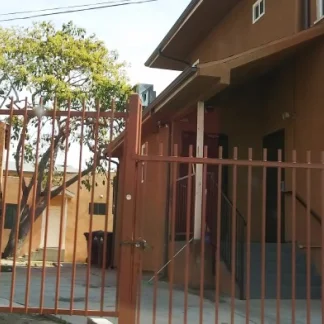Atlantic Recovery Services Charter III
Atlantic Recovery Services Charter III is a private rehab located in Los Angeles...
Located in Los Angeles, California, Mini Twelve Step House is an alcohol and drug rehab program for women, including pregnant women and postpartum women. Each person has the opportunity to participate in their service for longer than the traditional 28-day stay, making this location a long-term stay facility. The purpose of extended stays for addiction treatment is that it allows the client more time to practice the tools and recovery skills they learn in treatment before moving back into their home environment.
Mini Twelve Step House focuses on the 12 Steps of Alcoholics Anonymous to help their clients. Each person is treated as a whole person and will be treated with dignity and respect. Their services include:
The residential program offers individual therapy, group therapy, family therapy, couples counseling, personalized treatment plans, parenting classes, gender-specific education and treatment, educational classes on the disease of addiction, goal planning, and discharge planning.
Mini Twelve Step House accepts most insurance plans, including Amerigroup, Anthem, Blue Cross Blue Shield, Magellan, United Healthcare, Cigna, ComPsych, Aetna, and more. Out-of-network benefits may vary, so individuals are encouraged to contact their insurance carrier to learn more about their coverage.
Contact us for more information: (323) 232-6228

Connect with Mini Twelve Step House by calling their admissions team directly.
(323) 232-6228 Website Get DirectionsResearch clearly demonstrates that recovery is far more successful and sustainable when loved ones like family members participate in rehab and substance abuse treatment. Genetic factors may be at play when it comes to drug and alcohol addiction, as well as mental health issues. Family dynamics often play a critical role in addiction triggers, and if properly educated, family members can be a strong source of support when it comes to rehabilitation.
In individual therapy, a patient meets one-on-one with a trained psychologist or counselor. Therapy is a pivotal part of effective substance abuse treatment, as it often covers root causes of addiction, including challenges faced by the patient in their social, family, and work/school life.
Life skills trainings involve all the skills a person must have in order to function successfully in the world. These include time management, career guidance, money management, and effective communication. Truly successful addiction recovery is based on the ability to not only live substance-free, but to thrive. Life skills teaches the practical necessities of functioning in society, which sets clients up for success in life, and therefore sobriety.
In individual therapy, a patient meets one-on-one with a trained psychologist or counselor. Therapy is a pivotal part of effective substance abuse treatment, as it often covers root causes of addiction, including challenges faced by the patient in their social, family, and work/school life.
Life skills trainings involve all the skills a person must have in order to function successfully in the world. These include time management, career guidance, money management, and effective communication. Truly successful addiction recovery is based on the ability to not only live substance-free, but to thrive. Life skills teaches the practical necessities of functioning in society, which sets clients up for success in life, and therefore sobriety.
Life skills trainings involve all the skills a person must have in order to function successfully in the world. These include time management, career guidance, money management, and effective communication. Truly successful addiction recovery is based on the ability to not only live substance-free, but to thrive. Life skills teaches the practical necessities of functioning in society, which sets clients up for success in life, and therefore sobriety.
Atlantic Recovery Services Charter III is a private rehab located in Los Angeles...
Children’s Bureau - Magnolia Place Family Center, in Los Angeles, California, of...
Gateways Hospital and Mental Health Center – Adult Residential offers residentia...
Interconnection Grand Avenue Center for Dignity is a private rehab located in Lo...